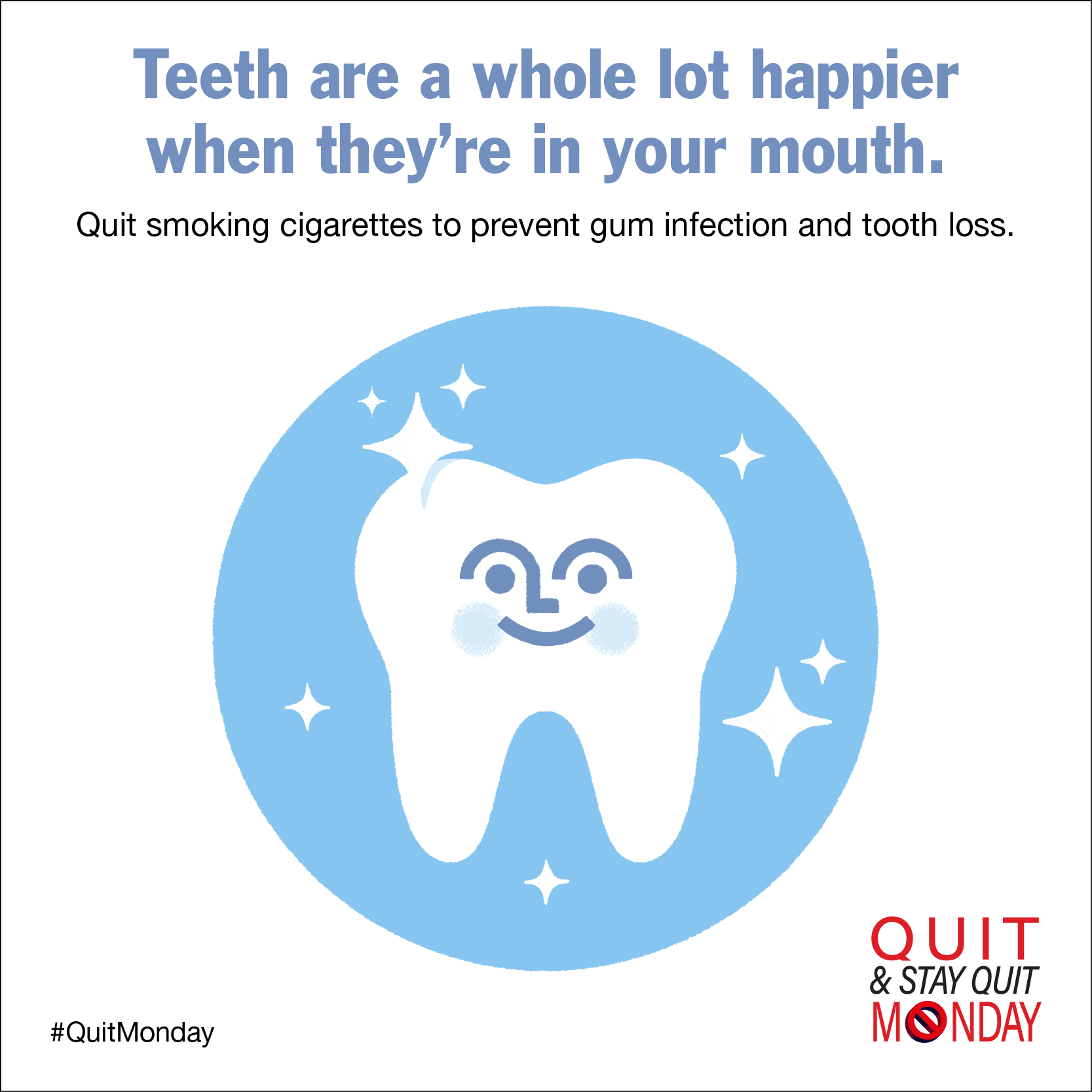Quit Smoking for Your Teeth
Smoking weakens the body’s immune system, making it harder to battle gum infection. A smoker has twice the risk for gum disease compared to a nonsmoker.
The best way to keep your butt out of the dentist’s chair (and avoid the piercing whir of the electric drill) is to quit smoking cigarettes.
First, tobacco smoke increases the production of bacterial plaque and heightens the risk of developing gum disease, but it also prevents the infected gums from healing by restricting the flow of oxygen to the blood stream (and your gums), which in turn leads to a number of painful symptoms such as bad breath, bleeding gums, painful chewing, receding gums, and tooth loss. Secondly, the tar, nicotine, and other chemicals found in cigarette smoke can dull the smile and leave teeth stained an unpleasant shade of mustard-yellow. Lastly, but most importantly, habitual cigarette smoking may also lead to cancer of the mouth, throat, and larynx (voice box).
Oral hygiene is key to preventing diseases of the teeth and gums, but it all needs to start with a commitment to quitting smoking. Continue doing the basics — brushing your teeth twice a day, floss often, visit your dentist for a cleaning once every six months — but also consider investing in some specialized dental products like toothpastes or mouthwashes.
